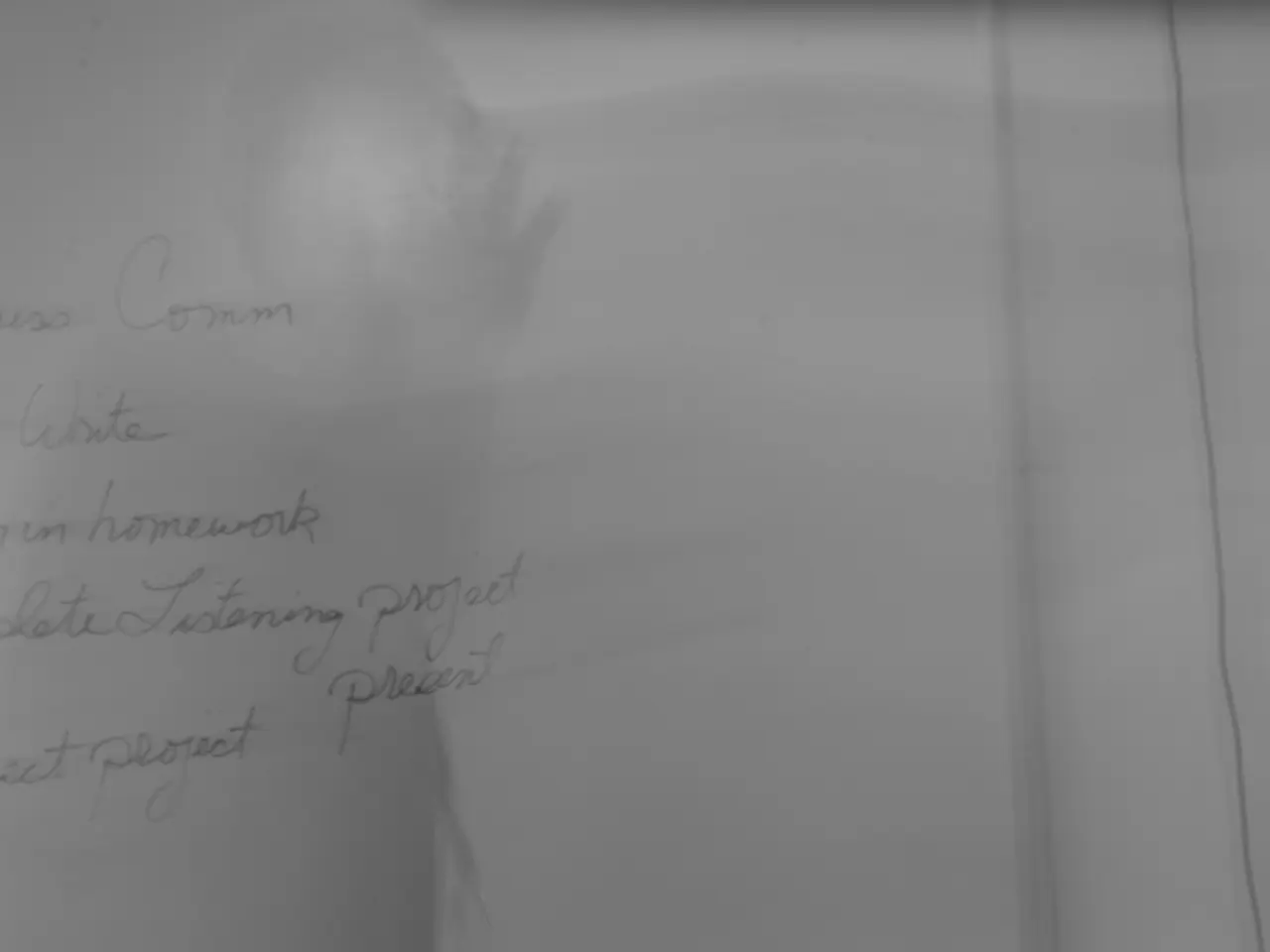Central Bank Maintains Key Interest Rates Amid Worry Over potential US Tariffs
The European Central Bank (ECB) has kept interest rates unchanged for the first time in a year, signalling a cautious stance on monetary policy. This decision comes as the bank navigates through a complex economic landscape, marked by global trade tensions and geopolitical uncertainties.
The ECB's outlook remains cautious due to the escalation of trade tensions, particularly with the United States. The ongoing trade dispute between the EU and the USA, highlighted by tariff increases under the Trump administration, complicates the economic forecast and makes policy decisions more uncertain.
Despite this, the eurozone economy is resilient, with inflation returning to its 2% target and core inflation remaining stable. The ECB regards minor inflation undershooting as not problematic, focusing instead on medium-term inflation outlooks for policy calibration. The stronger euro exchange rate, which might dampen inflation, is acknowledged but not seen as a trigger for immediate policy changes.
ECB President Christine Lagarde stated that the inflation outlook is more uncertain than usual. However, the inflation wave following the outbreak of the Ukraine war has broken, providing some relief. In June, inflation stood at 2.0 percent according to Eurostat, exactly in line with the ECB's medium-term target.
The ECB expects economic growth in the eurozone to be only 0.9 percent this year. Banks are preparing for an impending end to the ECB's interest rate cuts, with the deposit rate, important for banks and savers, remaining at 2.0 percent.
Commerzbank chief economist Jörg Krämer warns against further interest rate cuts, given the deposit rate is already at 2.0 percent. Lower interest rates stimulate the economy, but they can disadvantage savers as banks often lower their own deposit rates for customers. Maintaining the current interest rate sends an important signal for stability and flexibility in a still fragile environment.
The ECB is waiting for the final showdown in the trade negotiations between the USA and the EU. Economists fear a rise in inflation if the EU imposes its prepared multi-billion-euro counter-tariffs. However, the impact of the imposed and threatened high tariffs on the economy and inflation is difficult to assess.
The ECB's primary goal is stable prices, and it aims to avoid persistently falling prices. The bank is in a good position to wait, as it navigates through the complexities of the global economic landscape, ready to act if conditions change.
[1] European Central Bank (2023). Monetary Policy Decisions. [online] Available at: https://www.ecb.europa.eu/press/pr/date/2023/html/ecb.mp23xxxxxxxxen.html
[2] Financial Times (2023). ECB on Hold as Trade Tensions Cloud Outlook. [online] Available at: https://www.ft.com/content/b05e5e86-f6f6-4522-b180-30f18516d9e5
[3] Reuters (2023). ECB Stays on Hold as Trump Threatens EU Tariffs. [online] Available at: https://www.reuters.com/article/us-ecb-meeting/ecb-stays-on-hold-as-trump-threatens-eu-tariffs-idUSKCN1VU1ZT
[4] Bloomberg (2023). ECB Holds Rates as Inflation Outlook Clouds Outlook. [online] Available at: https://www.bloomberg.com/news/articles/2023-06-14/ecb-holds-rates-as-inflation-outlook-clouds-euro-area-recovery
- The European Central Bank (ECB) maintains a conservative monetary policy stance, considering the complications imposed by global trade tensions and geopolitical uncertainties in the context of business, finance, politics, and general-news.
- In the face of escalating trade tensions between the EU and USA, the ECB is carefully evaluating the impact on inflation, economic growth, and overall economic stability – factors that directly influence business, finance, politics, and general-news.




